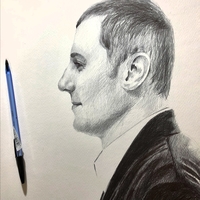
Feyles Martino
Address: Italy
less
Related Authors
Interactive Imagination Conference
Università degli Studi "La Sapienza" di Roma
Luca Bandirali
Università Del Salento
Irene Falini
Consiglio Nazionale delle Ricerche (CNR)
Višnja Bandalo
University of Zagreb, Faculty of Humanities and Social Sciences [Filozofski fakultet]
Federica Biassoni
Università Cattolica del Sacro Cuore (Catholic University of the Sacred Heart)
Julie Moretto Walker
Université de Strasbourg
Cristiano Cali
Università degli Studi di Torino
Cecilia Robustelli
Università degli studi di Modena e Reggio Emilia
Amber Phillips
Bristol UWE
InterestsView All (12)

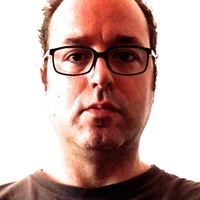
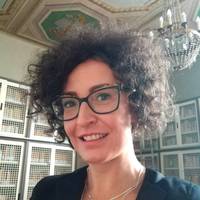
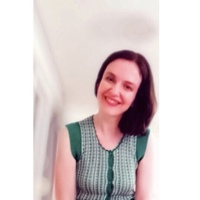
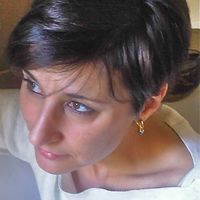
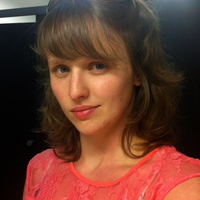
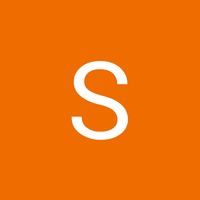
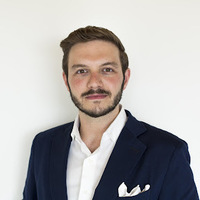


Uploads
Papers by Feyles Martino
Husserl is the problem of expression, which is undoubtedly closely linked to the problem of exteriorization. Husserl recognizes the need to distinguish between two different kinds of signifiers, namely, expressions and indications. The essay aims to analyse the theoretical legitimacy of this distinction. Behind this issue lies another problem, namely, understanding the relationship between language and technology. If it is true that exteriorization is one of the essential characteristics, of technology, analysing the distinction between indications and expressions means questioning the connection between technology and language.
Cercando una risposta a queste domande, l’autore attraversa la storia dell’estetica, presentando un’analisi chiara, ma anche approfondita, di alcuni problemi filosofici controversi, che sono ancora oggi rilevanti.
https://rdcu.be/cLmW4
The aim of this article is to highlight and discuss two problems of the biological philosophy of technology. In particular, I will analyse the work of André Leroi-Gourhan and Gilbert Simondon, and I will show that (a) the meaning of the analogy between technical and natural objects that underlies the approach of the biological philosophy of technology remains problematic and (b) the biological approach to technology is very effective for analysing tools and machines, but is not sufficient to describe the so-called information technologies. In the last part of the article, I will argue that, in order to understand information technologies, it is necessary to integrate the biological approach to technology with a grammatological approach. I will try to show that, next to the tool and the machine, there is a third category of technical objects that can be better described using the notion of "writing" proposed by one of the masters of the so-called French Thought, Jacques Derrida.
teorici della semiotica di Umberto Eco e riprendendo in particolare la distinzione tra
testi chiusi e testi aperti. Nella seconda parte dell’articolo viene affrontato il problema del
significato culturale e politico della rivoluzione tecnologica che si è verificata con la
diffusione planetaria del Web. Facendo riferimento al pensiero di Bernard Stiegler, l’autore
propone una prospettiva farmacologica, che evidenzia i pericoli, ma anche le opportunità
che derivano dalla diffusione globale della rete internet.
Husserl is the problem of expression, which is undoubtedly closely linked to the problem of exteriorization. Husserl recognizes the need to distinguish between two different kinds of signifiers, namely, expressions and indications. The essay aims to analyse the theoretical legitimacy of this distinction. Behind this issue lies another problem, namely, understanding the relationship between language and technology. If it is true that exteriorization is one of the essential characteristics, of technology, analysing the distinction between indications and expressions means questioning the connection between technology and language.
Cercando una risposta a queste domande, l’autore attraversa la storia dell’estetica, presentando un’analisi chiara, ma anche approfondita, di alcuni problemi filosofici controversi, che sono ancora oggi rilevanti.
https://rdcu.be/cLmW4
The aim of this article is to highlight and discuss two problems of the biological philosophy of technology. In particular, I will analyse the work of André Leroi-Gourhan and Gilbert Simondon, and I will show that (a) the meaning of the analogy between technical and natural objects that underlies the approach of the biological philosophy of technology remains problematic and (b) the biological approach to technology is very effective for analysing tools and machines, but is not sufficient to describe the so-called information technologies. In the last part of the article, I will argue that, in order to understand information technologies, it is necessary to integrate the biological approach to technology with a grammatological approach. I will try to show that, next to the tool and the machine, there is a third category of technical objects that can be better described using the notion of "writing" proposed by one of the masters of the so-called French Thought, Jacques Derrida.
teorici della semiotica di Umberto Eco e riprendendo in particolare la distinzione tra
testi chiusi e testi aperti. Nella seconda parte dell’articolo viene affrontato il problema del
significato culturale e politico della rivoluzione tecnologica che si è verificata con la
diffusione planetaria del Web. Facendo riferimento al pensiero di Bernard Stiegler, l’autore
propone una prospettiva farmacologica, che evidenzia i pericoli, ma anche le opportunità
che derivano dalla diffusione globale della rete internet.
Il convegno, organizzato da eCampus e finanziato da Next Generation EU / M.U.R, P.N.R.R., all’interno del progetto Aesthetics and Therapy si svolgerà a Roma, a Villa Mirafiori, nella sede del dipartimento di Filosofia della Sapienza. L’ingresso è libero. Per chi fosse interessato è possibile seguire i lavori anche da remoto, utilizzando questo link.
https://meet.google.com/xby-kvjn-avt
https://meet.goto.com/dottoratomedialita/aula-virtuale-medium-e-medialità-xxxvi-ciclo
10 febbraio 2022, ore 15, Dottorato "Medium e medialità", università eCampus; la partecipazione è aperta anche ai non iscritti al dottorato;